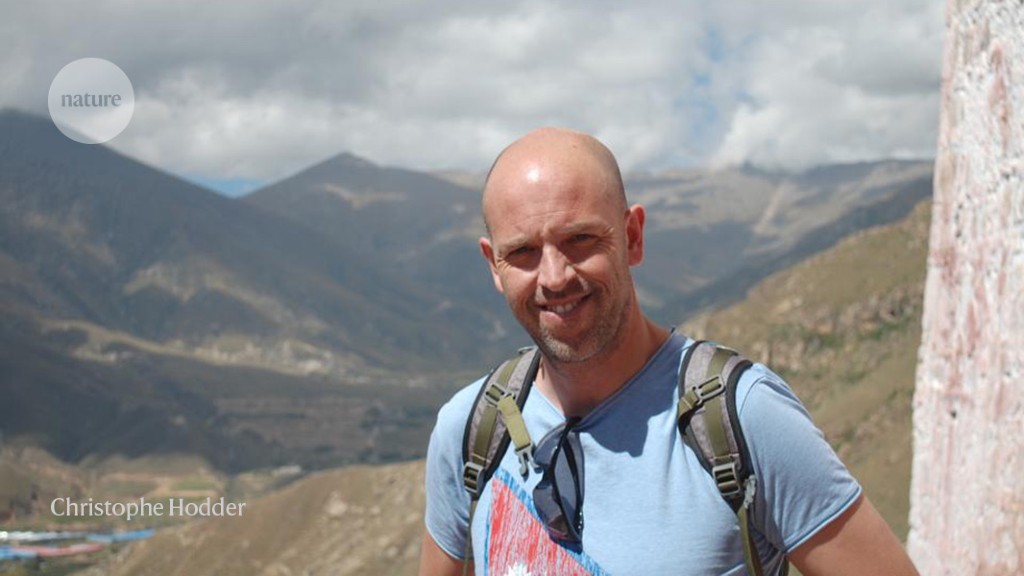Climate change pits clan against clan in drought-hit Somalia

Amid battles for water and grazing land, an awareness of local power dynamics is key, says United Nations adviser Christophe Hodder

Christophe Hodder studies the links between climate and instability in Somalia.Credit: Christophe Hodder
Science in conflict zones
Field researchers in conflict zones face great challenges owing to a lack of security, and the proliferation of gangs and extremist groups. Researchers are at risk of kidnapping, traumatic experiences, emotional and psychological scars, and even death. Moreover, ongoing conflict and violence can create an environment full of fear and mistrust among communities, and particularly towards researchers from abroad. This can make earning the cooperation of local residents and stakeholders difficult.
Researchers with experience working in conflict zones have learnt important lessons for keeping their teams safe and their research moving forward. Christophe Hodder, a climate security and environmental adviser to the United Nations mission in Mogadishu, Somalia, tells Nature how he copes with the risks while doing fieldwork amid conflict in the drought-stricken country.
Between 2007 and 2020, I worked with many international organizations that help people in countries of conflict or disaster. These included the earthquakes in Haiti and Nepal, Ebola outbreaks in Guinea, Mali, Sierra Leone and Liberia, and conflicts in Chad, northern Nigeria and the Democratic Republic of the Congo. In 2011, I earned my master’s in public health at the London School of Hygiene & Tropical Medicine, UK.
Since 2020, I have been working as a climate security and environmental adviser for the UN mission in Somalia, a country that has been in constant conflict since the early 1990s. My role is to understand the links between climate and instability, the vulnerability of natural resources to climate-related risks and nature-based solutions. Owing to drought, many conflicts occur between clans over water and grazing lands. I track people displaced by climate shocks, because they often come from areas where there is conflict between clans over natural resources. The theory is that climate change is exacerbating conflict. Accordingly, working to restore nature and ecosystems can reduce tensions and pave the way for lasting peace.
Before starting fieldwork, Christophe Hodder must decide whether it is safe to take a team to a particular region.Credit: Christophe Hodder
My family and I live in neighbouring Kenya. I travel to Somalia, visiting the banks of rivers, cities with water scarcity and refugee camps. I collect deforestation, water-catchment and river-flow data. These data are used to identify where and what types of interventions we can put in place. For example, we might recommend building water infrastructure that would reduce flood risks and potential future climate shocks. These include swales, which are ditches to collect and move water; flood-defence walls; and water-storage systems that use only natural formations and traditional knowledge about local plants, roots and trees. Through this approach, our work in Beledweyne in central Somalia helped to reduce flooding considerably in urban areas.
Although Somalia is one of the lowest contributors to global warming, it is considered one of the most affected by climate change. Despite the violent conflict in the country, it was natural disasters that were behind the displacement of 66% of the around 2 million people forced to leave their homes in 2022. Most of the rest were displaced by conflicts that have arisen in the aftermath of the civil war, which started after armed opposition toppled former president Mohamed Siad Barre’s regime in 1991.
Planning for safety
When we do fieldwork, we hold a meeting to coordinate operation communications, mobility plans for vehicles and to choose a team size that makes sense for the conditions. For instance, we must decide whether it is safe to work with a relatively large team of people who are new to the area, or if the region is too sensitive and doing so would create problems.
There are also local obstacles in conflict environments. Having a fair understanding of the power dynamics in the community is key to obtaining the cooperation of local people. As such, part of my work is to build trust with local leaders and stakeholders. I have learnt never to ignore the person who seemingly doesn’t welcome us; doing so can mean it is difficult to carry out our work. I look for another person who might influence them, and meet with them to try to earn or build their trust. I also ask the local leader to help us negotiate.
Once during fieldwork in Chad, the local people suspected us of giving patient information to an armed group, which we weren’t doing. I regained the community’s trust through negotiation with leaders and by calming their fears — we worked out how to satisfy some concerns and to provide help that served the local community, such as making more medical and life-saving services available. In doing so, I managed to avoid our group being expelled from the area.
I must also try to avoid being biased towards Northern-Hemisphere thinking. And I often go to the field with security guards, which can put up a barrier between me and locals. But the reality of working in Somalia sometimes requires this. I don’t enter houses or go into camps with armed guards. For each fieldwork visit, I prioritize the discussion with my guards about how to keep that space and dignity for community members. The guards also have training to ensure that they are respectful.
When working in a conflict zone, mental health also needs guarding. I have seen many colleagues with post-traumatic stress syndrome; they break down. I have found myself close to such a difficult situation. I regularly talk to a psychologist and exercise every morning to relieve stress, and I encourage my team to do so as well.
doi: https://doi.org/10.1038/d41586-023-03124-0
This interview has been edited for length and clarity.
This story originally appeared on: Nature - Author:Shihab Jamal


















